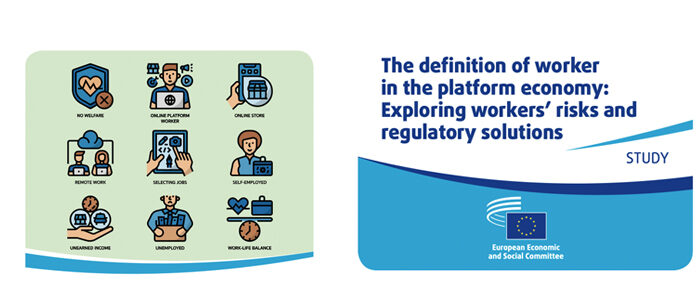Presentation of the study on definition of worker in the platform economy
On the 27th of October, notus presented the results of the study ‘The definition of worker in the platform economy: exploring workers’ risks and regulatory solutions’, which was commissioned by the Workers’ group of the European Economic and Social Committee (EESC).
The study was presented by Pablo Sanz and Tania Bazzani in the EESC Meeting of the Category “Workers’ Voice for more democratic participation” and can be reviewed from the following link.
The study, which can consulted in this link, has explored, first, the defining features of platform work in terms of prevalence, socio-demographic characteristics, algorithmic management and working conditions; substantiated by a comparison of four national responses to the emergence of platform work (Finland, Germany, Hungary and Spain).
Second, it has proposed a legal response aiming to improve labour rights and social protections for platform workers and other non-standard workers, based on the development of an EU definition of worker. The EU definition of worker has been elaborated by combining the main elements of the concept of worker under EU law (as established along the years by the rulings of the CJEU) with key scholarly contributions highlighting the main problems underlying the classification of workers, with a special focus on new and non-standard forms of work.



Comments are closed.